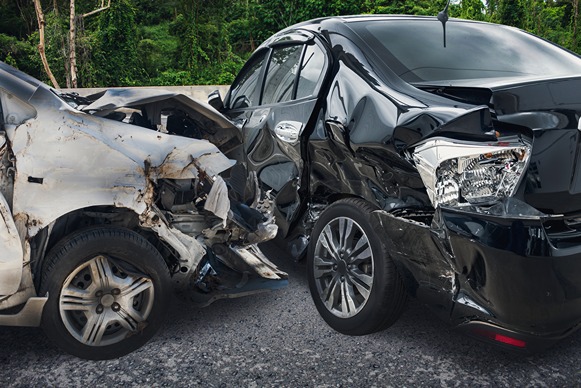
Car accidents can lead to a whirlwind of legal proceedings, with all the unique experiences that those entail. One of the pivotal aspects you might encounter is a deposition.
In a deposition, you’ll have to answer questions about your knowledge of specific facts under oath. The questioner is often an opposing attorney, so the experience can be stressful.
This article will guide you through what a car accident deposition entails in New Mexico, how to prepare for it, and the crucial role an attorney plays in this process.
What Is a Deposition?
A deposition is a formal legal process where individuals involved in a lawsuit provide sworn evidence out-of-court. The primary purpose of a deposition is to uncover what each party and other witnesses know about the circumstances of the case.
In the context of a car accident, a deposition provides an opportunity for the lawyers representing the parties involved in the accident to question witnesses, the drivers involved, and any experts who may have relevant information.
The deposition is conducted under oath, just like testimony in court, and everything said is transcribed by a court reporter for potential use later in the case. It’s a critical part of the discovery process, the period in a lawsuit where each side investigates the facts of the case to prepare for trial.
How Does a Deposition Relate to the Legal Process?
A lawsuit commonly involves four phases. First is the filing phase, where a party actually initiates a lawsuit. Next, there’s often a negotiation phase. Here, the parties attempt to settle the lawsuit without having to go to a hearing.
After that comes the discovery phase, where each party uses several legal tools to learn more about the other side’s relevant knowledge. Finally, there is the hearing stage, where a judge or jury evaluates each party’s case and makes a decision.
A deposition is a significant element of the discovery phase of a lawsuit. This process contributes to the broader discovery phase by clarifying facts, revealing new information, and providing a preview of what testimony might be presented at trial.
Depositions are also essential because they can encourage settlements. Once all the evidence is on the table, it’s often clearer how a case might play out in trial. Having this knowledge can prompt parties to reach a settlement agreement instead of proceeding to court, which saves both time and resources.
Moreover, depositions create a record of a witness’s testimony, which can be used at trial. This can be especially useful if a witness becomes unavailable or changes their statement later on. Since statements are given under oath and under the penalty of perjury, they help guarantee that witness testimony is as truthful and accurate as possible.
How Long Does a Car Accident Deposition Take?
It depends. Several factors determine the length of a car accident deposition. These factors include:
- The complexity of the facts;
- The number of claims;
- The number of parties involved
- The number of witnesses; and
- The amount of evidence.
Some depositions might last only an hour or two, while others could take a full day or even span multiple days. Whatever the length of the deposition, it’s crucial to approach the deposition with patience and preparedness. It may be an essential step in the pursuit of a fair outcome in your case.
What Happens at a Deposition for a Car Accident?
At a car accident deposition, an attorney will ask you questions about the accident. You can expect questions about your recollection of events, your injuries, and any medical treatment you obtained.
Assuming you are one of the parties in the case, the opposing counsel’s goal is to gather information that will support their client’s case and undermine yours. This might involve asking detailed or challenging questions.
However, if you retain a lawyer, they will be present during the deposition as well. Their primary goal at the deposition will be to protect your interests and help guarantee you fair treatment.
How Long Does a Car Accident Settlement Take After Deposition?
Again, it depends. All kinds of factors come into play, including the information that the deposition reveals, the attitude of the parties, and even the court’s schedule.
In some cases, the parties may reach a settlement immediately after the deposition. This usually occurs because the deposition reveals information that leads one side to realize their position is not as strong as they initially thought, prompting them to seek a settlement. Sometimes, a deposition may clarify the facts of the case and make the path to resolution clearer for both sides.
In other instances, settlement negotiations may continue for weeks or months after the deposition. If the case is particularly complex or if the parties are far apart in their settlement demands, a resolution may be impossible.
How to Succeed in a Car Accident Deposition
Success in a car accident deposition often comes down to preparation and truthfulness. Here are a few strategies to help you succeed:
- Review the Facts. Go over all the facts of the accident before the deposition. If you have an attorney, they will help you prepare by reviewing documents with you and discussing potential questions.
- Speak Truthfully. Always tell the truth. Remember that you’re under oath and that you may face perjury charges if you give false answers.
- Speak Clearly. It’s also important to speak clearly so that the court reporter can accurately transcribe your answers. Refrain from nodding your head, shrugging your shoulders, and making ambiguous responses like “uh-huh.”
- Don’t Speculate. If you don’t know the answer to a question, it’s okay to say so. Avoid guessing or speculating.
Finally, stay calm and professional. Although the deposition can be stressful, try to stay calm. Regardless of the interrogator’s behavior, avoid arguing with them and maintain a professional demeanor throughout.
Why It’s Critical to Have an Attorney During a Car Accident Deposition
Having an attorney at your side during a car accident deposition provides several invaluable benefits. As we already mentioned, your attorney can prepare you for the deposition.
Prior to the deposition, they’ll help you understand what to expect. They will also discuss how to respond to questions effectively.
During the deposition, your attorney can object to inappropriate or irrelevant questions and guide you when answers may require more context. They can also ask follow-up questions that help highlight crucial facts in your favor.
Let the Attorneys at Tawney, Acosta & Chaparro P.C. Prepare You for Your Deposition
Grappling with the aftereffects of a car accident is a daunting task. In many cases, you’ll have to simultaneously heal from your injuries, overcome financial setbacks, and cope with emotional distress.
Your recovery can feel all the more overwhelming when it involves complex legal proceedings such as a deposition. But at Tawney, Acosta & Chaparro P.C., we’re here to shoulder that burden for you.
With law offices in New Mexico and Texas, our team of dedicated attorneys brings extensive experience in tackling personal injury and workers’ compensation cases. We understand that our clients often approach us during the most challenging times of their lives, and we honor that trust by offering relentless, competent representation.
If you’re seeking justice following a car accident and need a law firm committed to standing by your side every step of the way, we invite you to reach out. Call Tawney, Acosta & Chaparro P.C. today for a free initial consultation, and let us guide you through your legal journey.

